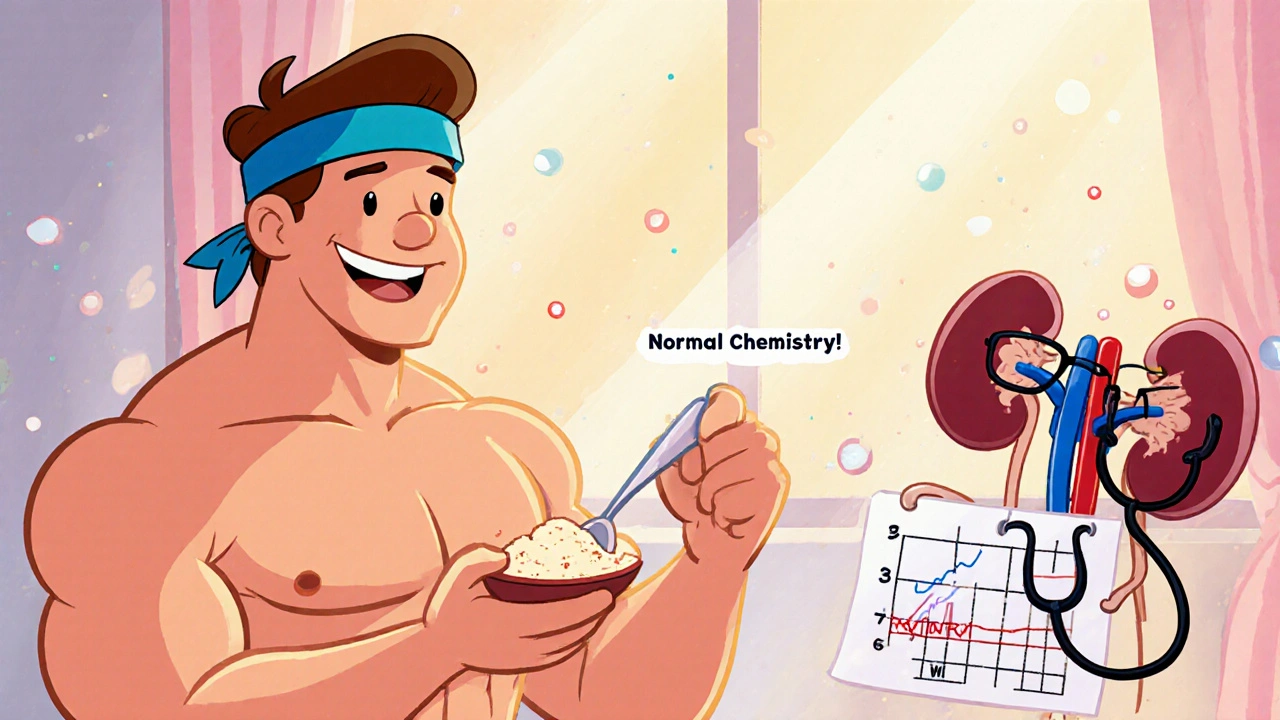Creatinine: What It Means for Your Kidneys and Medication Safety
When your doctor orders a blood test and sees creatinine, a waste product from muscle breakdown that your kidneys filter out. Also known as serum creatinine, it's one of the most common clues doctors use to check if your kidneys are keeping up with your body’s daily trash. If creatinine is too high, it usually means your kidneys aren’t filtering as well as they should. Too low? That might mean you’re not making enough muscle waste — which could point to low muscle mass, severe malnutrition, or even liver problems. It’s not a diagnosis on its own, but it’s the first red flag that tells your doctor to look deeper.
Many medications — especially painkillers, antibiotics, and blood pressure drugs — rely on healthy kidneys to leave your body safely. If your creatinine is climbing, your doctor might lower your dose or switch you to a drug that’s easier on your kidneys. For example, NSAIDs like diclofenac, a common painkiller found in Voveran can spike creatinine in people with weak kidneys. Same with metformin, the go-to diabetes drug in Glycomet SR. It’s safe for most, but if your creatinine is too high, your doctor will pause it to avoid dangerous buildup. Even something as simple as acetaminophen, the active ingredient in Tylenol, needs careful dosing if your kidneys are struggling — because your body can’t clear it properly.
It’s not just about drugs. Dehydration, intense workouts, or eating a lot of red meat can temporarily push creatinine up — making it look like your kidneys are failing when they’re not. That’s why doctors don’t rely on one number. They look at trends over time, check your age, sex, and muscle mass, and often combine it with another test called eGFR. If your creatinine is normal but your eGFR is low, something’s still off. And if you’re on long-term meds for high blood pressure, diabetes, or autoimmune disease, your creatinine gets checked every few months — not because you’re sick, but because prevention beats crisis.
You’ll find posts here that dig into how creatinine ties into real-world medication risks — from why some antibiotics need dose tweaks, to how liver and kidney health overlap in conditions like portal hypertension. You’ll see how drugs like Hyzaar or Protonix affect kidney filters, and why stopping a medication cold can throw your creatinine into chaos. Whether you’re managing a chronic condition, worried about side effects, or just trying to understand your lab results, this collection gives you the straight facts — no fluff, no jargon, just what you need to stay safe.

